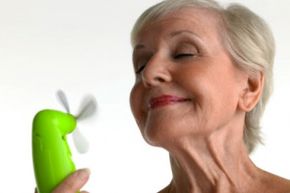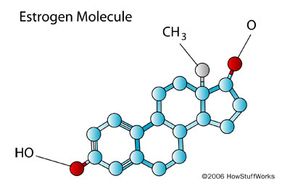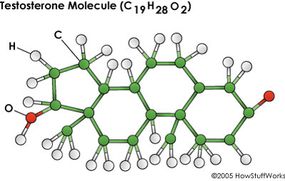Imagine a sudden wave of intense heat rushing through your body. Within seconds of its arrival, this strange feeling that you're experiencing causes you to sweat, and you'd swear that your skin is on fire. As foolish as it sounds, you feel like stripping off the clothing that you're wearing and finding the coolest place you possibly can -- even if it's the middle of winter. Within minutes, or even hours in some cases, the feeling passes, and this odd sensation disappears just as quickly as it arrived. If you’ve ever experienced a similar scenario, chances are that you’re not crazy, and you’re probably not dying either. You’re simply dealing with a condition known as hot flashes.
Hot flashes can make your body feel like it has somehow become a raging furnace. The heat you experience during a hot flash is often overwhelming; it really does feel as if it's taking over your body. Clothes can suddenly feel too heavy to wear. The bed covers feel as if they're suffocating you, and you’re often drenched in sweat. Hot flashes are often associated with chills -- the chills are typically the result of sweat drying on the surface of the skin.
Advertisement
For some, hot flashes are random, but for others, they occur on a regular basis. Either way, hot flashes can be as short as two minutes or as long as thirty minutes, with a frequency that may increase over time.
Some people claim that they are able to determine when they’re moments away from having a hot flash. They experience what is called an aura, or a feeling of premonition, just prior to the onset of the flash. This early warning system gives these fortunate few a brief time to prepare for the uncomfortable feeling that's soon to take over their body.
Hot flashes are a condition that a vast number of people worldwide deal with -- an estimated 50 million women in the United States alone. But what group does it affect the most, anyway? What can be done to minimize, or even prevent, hot flashes? And perhaps most importantly, what causes hot flashes? Read the next page to find out.
Advertisement




